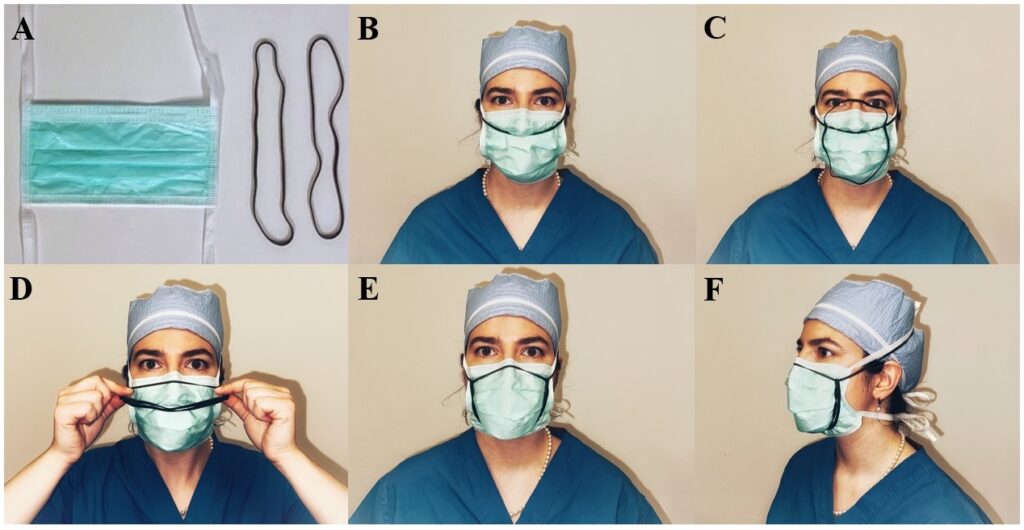N95 shortages compromise protection but healthcare workers now have a cheap, effective alternative.
An easy, low-cost modification to surgical face masks can make them as effective as N95 masks in protecting against airborne particles, researchers have found.
A recent study from Michigan revealed that two 20cm rubber bands can be used to create a seal over the bridge of the nose, around the cheeks, and under the chin of the wearer.
The authors hypothesised that modifying surgical masks could help address the worldwide shortage of N95 respirators and provide individuals in under-resourced areas a cheap, practical and effective way to increase their protection.
Surgical masks are not 100% effective due to the lack of seal around the face, allowing peripheral entryways for particles. For this reason, N95 masks have been considered the gold standard of protection from airborne illnesses throughout the covid pandemic.
The study, published in PLOS ONE, tested 40 health care workers with modified masks. To be considered at the same standard of defence as a N95, a mask needs to reach a Fit Factor score of at least 100. This is determined using a TSI PortaCount 8048 machine with particle generator.
The researchers found that 78% of subjects not only passed the initial Fit Factor test, but scored an average of 151. Of those that passed, 87% scored in the highest quarter possible, at a level of 150 to 200-plus. Of the nine participants whose modified surgical masks failed initial Fit Factor testing, two were within 26 points of passing.
However, by the final day of testing all 40 subjects had passed the threshold of 100, indicating that continued use and experience with the modifications improved protection for the wearer.

Unmodified masks scored a low 3.8, and improperly modified masks scored an average of 24.6. N95 masks still hold the highest score of 199, but masks passing the threshold of 100 could be considered just as effective, the authors wrote.
They found 71% of responders to the post-test survey reported that the modified masks were as or more comfortable than unmodified surgical masks, and 100% of those who passed initial testing reported the masks feeling secure.
The study did conclude that multiple training sessions were likely required to teach individuals how to properly modify their masks to ensure improved protection and comfort. However, even poorly modified surgical masks scored higher than unmodified masks.


